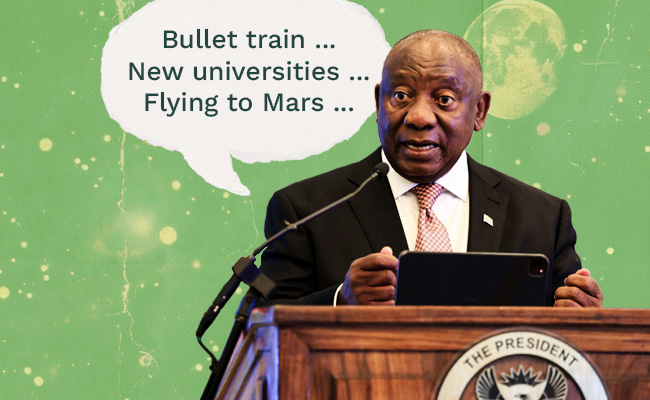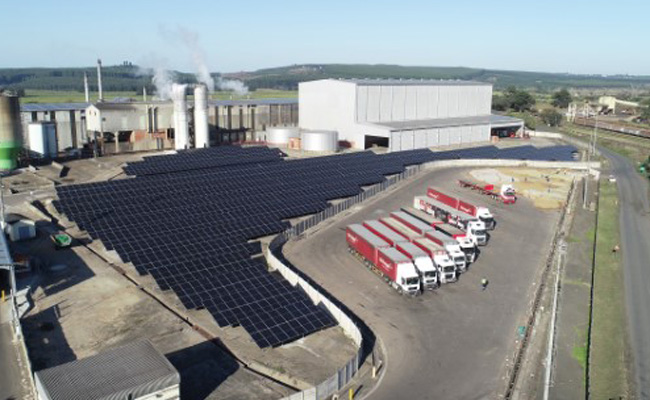South Africa’s parliament must exercise greater oversight of mobile phone giants MTN and Vodacom to prevent them “abusing” their deep political connections, says non-profit group Open Secrets.
In a new report, Open Secrets has traced the political links of these operators, not just at home but also in countries across the continent, where the Johannesburg-based companies have been accused of allowing authoritarian regimes to act against their own people.
“For these companies to operate, they need to win mobile licences from governments. This means they have to build relationships with politicians, but we’ve seen how these relationships have been manipulated,” says Open Secrets’ investigator Ra’eesa Pather.
“In a number of cases, MTN and Vodacom have shut down the internet to help various governments, and in this darkness, those governments committed massacres. And there has been no real accountability for this at home.”
This happened in 2015, when Vodacom shut down the internet at the request of Joseph Kabila’s government in the Democratic Republic of Congo (DRC) to quell dissent after state forces killed 40 people during elections. It happened again in 2018 for 21 days, as protests over Kabila’s attempt to remain in power claimed at least two lives.
“The cuts… create a veil of darkness that allows repression to occur,” Reporters Without Borders said in a letter to the government at the time. “The DRC has already joined an alarming global trend of internet outages for political reasons.”
But Vodacom was in deep with Kabila, says Open Secrets. Its report details how Kabila’s sister, Jaynet, co-owned a company with a 9.6% stake in Vodacom Congo, while the company was getting millions in loans from BGFI bank, also controlled by Kabila’s family.
It later emerged that Vodacom Congo was able to rack up a $243m tax bill, without being leaned on to pay up, unlike many other companies in that country.
With operations in 16 African markets, MTN has allegedly also bent to the demands of politicians.
In Sudan, it shut down the internet 19 times, including in 2019 when government forces killed 100 protesters. And after the Arab Spring in Syria in 2011, MTN was ordered to block messages containing keywords related to the revolution. It has faced similar allegations in Cameroon, Afghanistan and Iran.
“MTN might have been ordered to do this by the governments of these countries, or they might have done it following the orders of other authoritarian groups in some cases – we don’t know, because we don’t see their contracts,” says Pather. “But what we do know is that this makes them complicit, either way, in enabling human rights abuses.”
‘Corrupt quid pro quo’
Open Secrets’ report provides disturbing insight into the cost MTN has had to pay for operating in some of Africa’s most lawless nations. While this has helped create a R310bn company in 31 years, it has led to no end of headaches – particularly in Iran.
Dark allegations of corruption have continued to haunt MTN for the past 15 years, as rival Turkcell lodged a $4.2bn legal claim against it – now in South Africa’s Constitutional Court – arguing that it bribed Iranian politicians to win the licence back in 2005.
The Middle East Africa Research Institute, in an August report, spelt out how MTN is accused of offering a corrupt “quid pro quo” to Iran’s government to swing a vital United Nations (UN) vote on its nuclear programme in exchange for the licence.
“South Africa’s ambassador to Iran, Yusuf Saloojee, allegedly gave MTN assurances that South Africa’s ambassador to the International Atomic Energy Agency, Abdul Minty, would not support referring Iran to the UN Security Council,” the Institute said.
It added that MTN “was in a prime position to secure favours from the South African government, since its senior staff, including [then-] chair Cyril Ramaphosa, and executive director Irene Charnley, were both extremely well-connected members of the ruling ANC.”
In September 2005, Minty did indeed abstain from a vote that found Iran guilty of violating its nuclear non-proliferation commitments. Turkcell says “this was not a mere coincidence”, even though MTN has hotly denied that there was ever a kickback involved.
What hurt MTN badly, however, was testimony from its former executive in Iran, Chris Kilowan, who admitted under oath that he had bribed Iranian officials.
Besides the nuclear energy quid pro quo, Kilowan said he had paid Saloojee $200,000 to lobby on its behalf to get the licence.
Kilowan said the South African ambassador asked him whether MTN “would be prepared to give me money to buy [a] house”, in exchange for his help. Though Kilowan said he paid that $200,000 out of his own pocket, MTN refused to repay him – a fallout that led him to become Turkcell’s star witness.
Though MTN’s executives have yet to face prosecution in this case, others have. In 2019, Saloojee was arrested by the Hawks, but died before the case was prosecuted.
Pather says there is no question that MTN is close to the centre of South African political power.
Ramaphosa served as chair for 12 years before giving up the role in 2013; the mobile company’s chair is now Mcebisi Jonas – a former deputy finance minister whom Ramaphosa picked as a “special envoy” to the US in April, after South Africa’s former ambassador Ebrahim Rasool was booted out of the country.
But Jonas’ new role has also rubbed US politicians up the wrong way, given MTN’s proximity to countries like Iran and Syria. Nor did it help that Jonas has been forced to defend his past comments, in which he called US president Donald Trump a “racist” and “narcissistic”.
Senators gun for MTN
In June, Senator Elise Stefanik wrote to Robin Vince, the CEO of Bank of New York Mellon – which offers MTN stock to US investors through American depositary receipts (ADRs) – calling on the bank to suspend trading of the company’s shares in the US pending a full investigation.
“MTN Group owns 49% of Irancell, Iran’s largest mobile operator, which US authorities and courts have linked directly to terrorist activities that resulted in the injury and death of American service members and civilians,” she wrote.
These “terrorism” claims are being ventilated in five civil cases in the US.
In one of them, families of American soldiers killed in Afghanistan claim that MTN infringed the Anti-Terrorism Act by paying “protection money” to al-Qaeda and the Taliban in Afghanistan between 2009 and 2017 to avoid their mobile-phone towers being damaged.
This money helped provide “material support” to the militant Islamist groups, the complaints allege, which was used to finance an insurgency in which soldiers were killed.
The South African company, however, disputes this, saying it “was not involved in those tragic events”, and it had “not been found guilty by any court of any wrongdoing”.
But the taint won’t go away. In August, MTN revealed it is the target of a US grand jury investigation involving its business in Afghanistan and Iran. “MTN is cooperating with the [Department of Justice] and voluntarily responding to requests for information,” it said.
The question, says Pather, is why MTN and Vodacom haven’t been held accountable at home, where they are both headquartered.
“It is hard not to believe that it is their proximity to political power which has protected them from deeper scrutiny,” she says. “We need to have far greater insight into these relationships, and we need parliamentarians to be asking these questions.”
Pather says South Africa isn’t in the midst of a revolution today, so it’s not as if the country’s citizens have witnessed the internet being shut down to protect politicians. But if these operators are willing to do this elsewhere, or trade favours with politicians to keep their licence, this provides alarming clues about their ethical mooring.
“What we do have, however, are widespread instances of political killings, corruption and crime,” she says. “So, we need to know to what extent our largest companies would help politicians in abusing the trust of their citizens.”
Top image: Rawpixel/ Currency collage
Sign up to Currency’s weekly newsletters to receive your own bulletin of weekday news and weekend treats. Register here.












